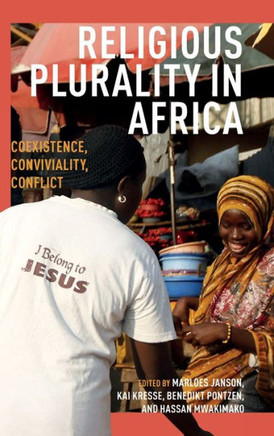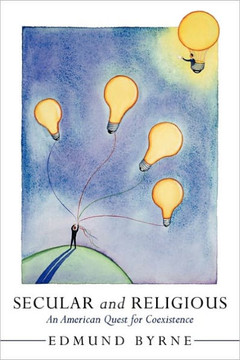
Boydell & Brewer
Religious Plurality in Africa : Coexistence, Conviviality, Conflict
Product Code:
9781847013903
ISBN13:
9781847013903
Condition:
New
$144.88

Religious Plurality in Africa : Coexistence, Conviviality, Conflict
$144.88
Grounded in ethnographic and historiographic research and taking a cross-regional approach, this book explores the complex dynamics of similarity and difference, rapprochement and detachment, and divergence and competition between practitioners of Christianity, Islam and African religious traditions.Across Africa, Muslims, Christians, and practitioners of African religious traditions live in shared settings, demarcating themselves in opposition to one another and at times engaging in violent conflicts, but also being entangled in complex ways and showing unexpected similarities and mutual cross-overs. However, while encounters and entanglements of African religious traditions with either Islam or Christianity have long been a central research issue, the configuration as a whole has barely been taken into account, even though Muslims, Christians, and practitioners of African religious traditions have long co-existed - and still co-exist - more or less peacefully in many settings in Africa. Building on recent interventions to move beyond the compartmentalization of the study of religion in Africa, this edited volume will spotlight why and how an integrated approach to Islam, Christianity, and African religious traditions is important. Bringing together stimulating case studies from Kenya, Nigeria, Zanzibar, Ghana, and Mozambique that offer new directions for ethnographic and historical research, the volume will not only shed light on an important phenomenon out there in the world - the long-overlooked ways in which Muslims, Christians and practitioners of African religious traditions interact with one another in various majority-minority configurations - but will also engage with a critical rethinking of the study of religion in Africa (and beyond).nterventions to move beyond the compartmentalization of the study of religion in Africa, this edited volume will spotlight why and how an integrated approach to Islam, Christianity, and African religious traditions is important. Bringing together stimulating case studies from Kenya, Nigeria, Zanzibar, Ghana, and Mozambique that offer new directions for ethnographic and historical research, the volume will not only shed light on an important phenomenon out there in the world - the long-overlooked ways in which Muslims, Christians and practitioners of African religious traditions interact with one another in various majority-minority configurations - but will also engage with a critical rethinking of the study of religion in Africa (and beyond).nterventions to move beyond the compartmentalization of the study of religion in Africa, this edited volume will spotlight why and how an integrated approach to Islam, Christianity, and African religious traditions is important. Bringing together stimulating case studies from Kenya, Nigeria, Zanzibar, Ghana, and Mozambique that offer new directions for ethnographic and historical research, the volume will not only shed light on an important phenomenon out there in the world - the long-overlooked ways in which Muslims, Christians and practitioners of African religious traditions interact with one another in various majority-minority configurations - but will also engage with a critical rethinking of the study of religion in Africa (and beyond).nterventions to move beyond the compartmentalization of the study of religion in Africa, this edited volume will spotlight why and how an integrated approach to Islam, Christianity, and African religious traditions is important. Bringing together stimulating case studies from Kenya, Nigeria, Zanzibar, Ghana, and Mozambique that offer new directions for ethnographic and historical research, the volume will not only shed light on an important phenomenon out there in the world - the long-overlooked ways in which Muslims, Christians and practitioners of African religious traditions interact with one another in various majority-minority configurations - but will also engage with a critical rethinking of the study of religion in Africa (and beyond). from Kenya, Nigeria, Zanzibar, Ghana, and Mozambique that offer new directions for ethnographic and historical research, the volume will not only shed light on an important phenomenon out there in the world - the long-overlooked ways in which Muslims, Christians and practitioners of African religious traditions interact with one another in various majority-minority configurations - but will also engage with a critical rethinking of the study of religion in Africa (and beyond).
| Author: Marloes Janson, Benedikt Pontzen, Kai Kresse, Hassan A. Mwakimako |
| Publisher: Boydell & Brewer |
| Publication Date: Jul 16, 2024 |
| Number of Pages: 313 pages |
| Language: English |
| Binding: Hardcover |
| ISBN-10: 1847013902 |
| ISBN-13: 9781847013903 |





